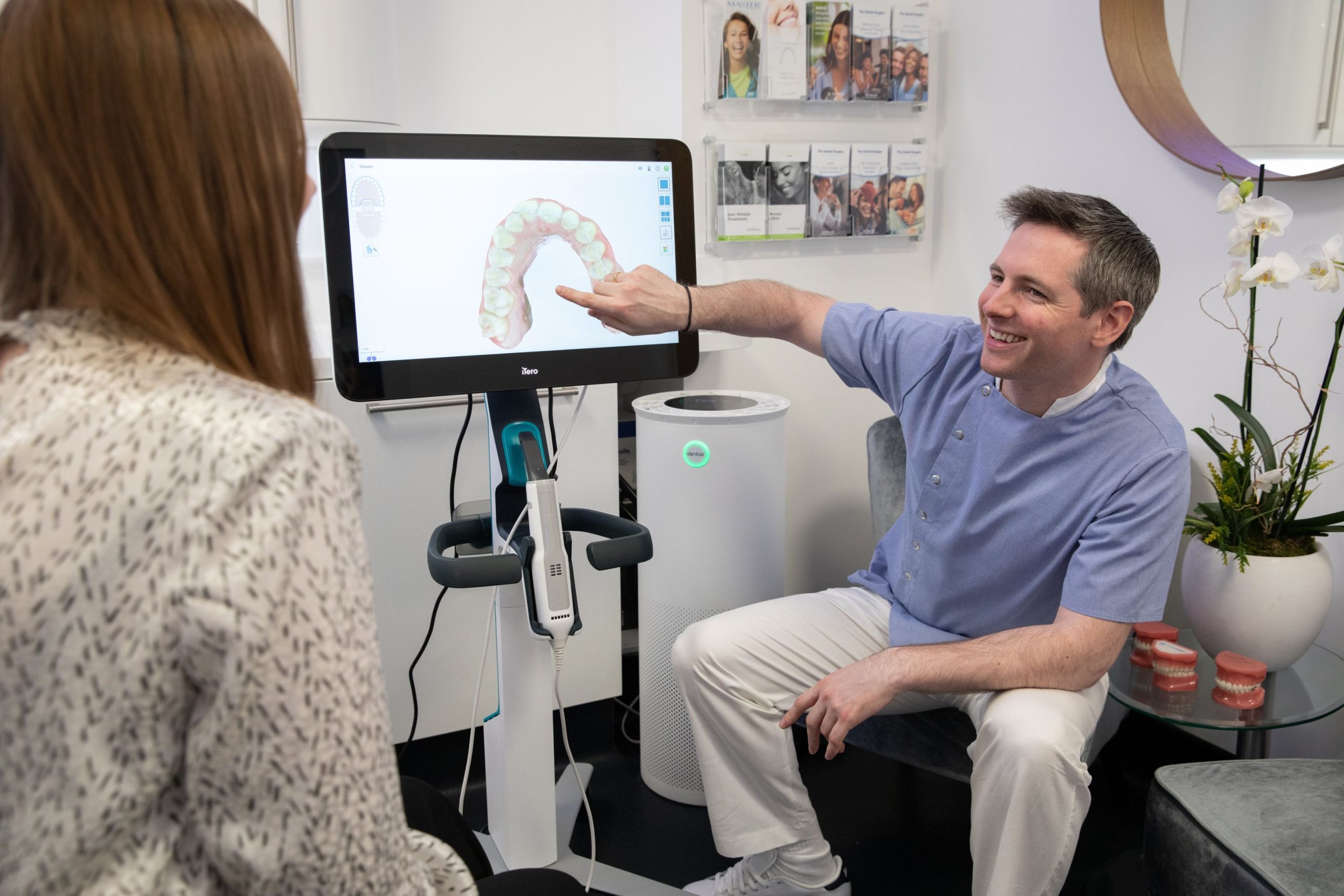Are you scared to go to the dentist?
Dealing with Dental Anxiety related to seeing the dentist is extremely common, indeed for some the fear is full blown Dental Phobia.
In the United States – and there is no reason to imagine UK figures are vastly different – as many as 20% of people avoid going to the dentist because of this fear.
However, failing to visit the dentist can lead to problems going unchecked. These in turn can have an impact even beyond oral health. Gum problems, for instance, have been linked with diabetes and other medical conditions.
Admittedly, knowing that oral health issues can have a wider health impact might not alleviate your anxiety so here are seven things that may.
1. Don’t be embarrassed, you are not alone
If you have not been to see a dentist for a while (be it months or a number of years), you will not be met with disapproval and given the feeling that you are being judged. The opposite is more likely, if we are aware that you are having a first appointment in years our team will try to make the experience a positive one.
It is our professional privilege to look after your oral health and help you get back on track to proper dental care. There are many people who go years without seeing a dentist and hygienist, be it due to fear, a busy lifestyle or even moving and never getting around to finding a new dentist.
2. Don’t hide your fear of the dentist
If you suffer from anxiety or dental phobia, then just booking in for an appointment and turning up is an achievement, you don’t need to mask your anxiety and pretend everything is fine. Make the practice aware that you are nervous and talk through any specific concerns. Is pain a major concern? If so, numbing agents can be used, so too can local anaesthetic. Perhaps you have had negative dental experiences in the past. The more we know the better placed we are to make sure your visit is comfortable. You can also agree a signal to let the dentist or hygienist know that you are starting to feel uncomfortable, for instance raising a hand during treatment or examination might be a sign that you need a break.
3. Think what might help reduce your dental anxiety
What little changes can the dental practice make to help put you at ease? Would playing calming music help, or maybe something more thought-provoking (we have had patients who like to listen to Radio 4 – focusing on a complex issue helping to take their mind off the dental appointment). It might be that relaxing fragrances help. Small accommodations can make appointments far less of a challenge for anxious patients, your dentist should be both accommodating and also able to suggest remedies that can help put you at ease.
4. Remember, the first dental appointment will just be a check-up
Any patient with anxiety and who might not have seen a dentist in years might build up a visit into a nightmare scenario which will result in them requiring major treatment there and then. This will not be the reality. Instead, the first check-up will be just that, a chance to check the state of your teeth and gums and discuss the best treatment options before going ahead with them. You can also see this first appointment as a chance to get to know your dentist or hygienist, they should put you at ease and make future visits feel far more manageable.
5. Choose a time that reduces dental anxiety
An appointment at the start of the day may reduce anxiety – if, for example, you are seen at 8am then it is done by 8.30am and there is no more anxiety to dominate the rest of the day. This is maybe preferable to an appointment at later in the day, where anxiety has time to grow and the worry can impinge on the rest of the day’s tasks or lead you to cancel the appointment you have made. Alternatively, perhaps you want an appointment at the end of your working day so that you don’t feel rushed getting back to work or other commitments. Make the appointment time work for you. It might also be worth booking an appointment as soon as possible. If you have chosen a promising dental practice and they have an appointment in the next couple of days, why not choose the soonest and get it out of the way, rather than having a date weeks in the future which may only increase you stress.
6. Establish a regular dental pattern from a young age
For children it is advisable to start seeing a dentist with their family around their first birthday and to maintain regular check-ups so that going to the dentist never feels like a big deal; it is simply something that forms part of their lives. Even in adulthood this advice holds value, the hardest appointment for anyone who has not been to the dentist in a while is the first one. After that, settle into a pattern, maintain regular check-ups and then you will always know that your oral health is being looked after and appointments will become routine rather than panic inducing.
7. Choose a hygienist and dentist for anxious patients
You don’t have to choose the nearest dentist or hygienist, in fact you definitely shouldn’t choose them solely because they are closest to your house. Look at reviews, ask friends and colleagues, even be open when asking this advice, admit you are a nervous patient and see what they say of their dentist’s manner. You can also do research prior to committing to a dentist (or if your current dentist does nothing to reduce anxiety maybe find a new one!). Many sites have information about their methods and a chance to find out about individual members of the team. Any practice should allow you to have a look around prior to committing to an appointment – the aim is to demystify the practice, it is not a scary place full of aloof people in white coats, it is a modern, calm facility with passionate, skilled and friendly professionals.
We Welcome Nervous Patients
At The Dental Surgery in London, we are committed to making every patient’s experience a positive one. This is shown through our patient testimonials. All these are taken from independent, verified reviews on Google.
“You really put me at ease and helped me get over my anxiety of visiting the dentist! It had been a long time between visits and my teeth are in much better shape after just a few visits.”
“I think this dental practice is brilliant! Absolutely amazing and friendly staff. I had been in pain for 2 days and was seen by the dentist first thing the next day after I called in.
“They were very kind, friendly and gentle, and their professional ethics are highly commendable.”
“They took care of the problem and gave me detailed explanation of the situation and aftercare. I would highly recommend this place to my friends and family!”
Do you have a specific question?
If you would like further information about dental implants or find out if this is a suitable treatment option for you, please contact us.



